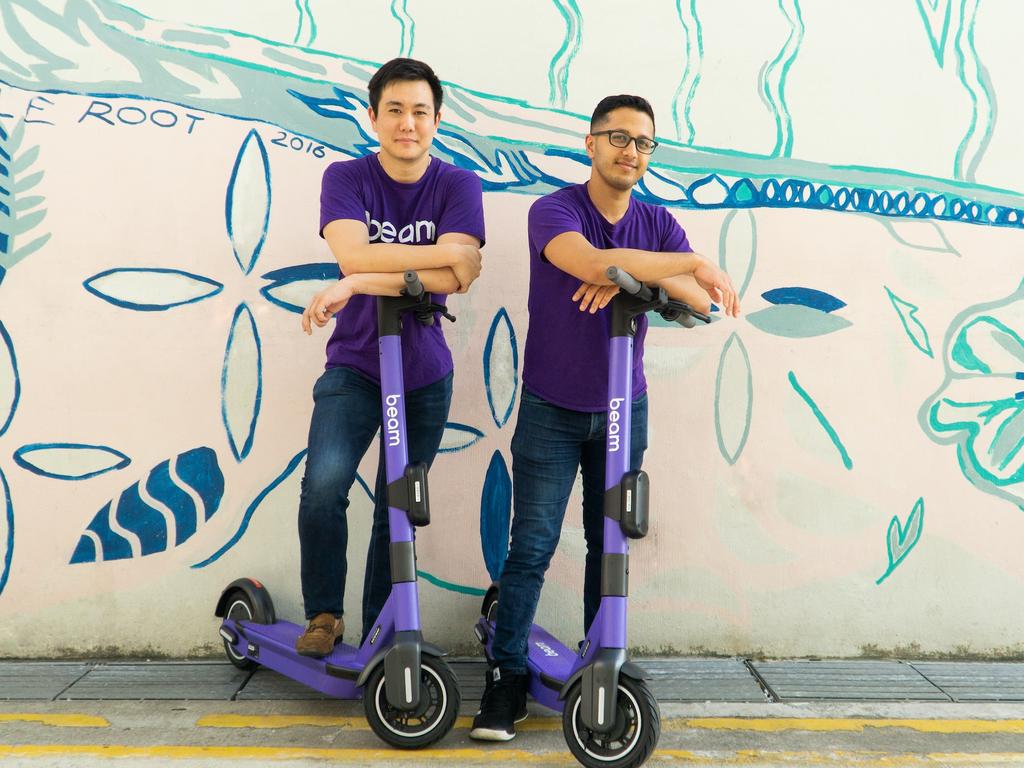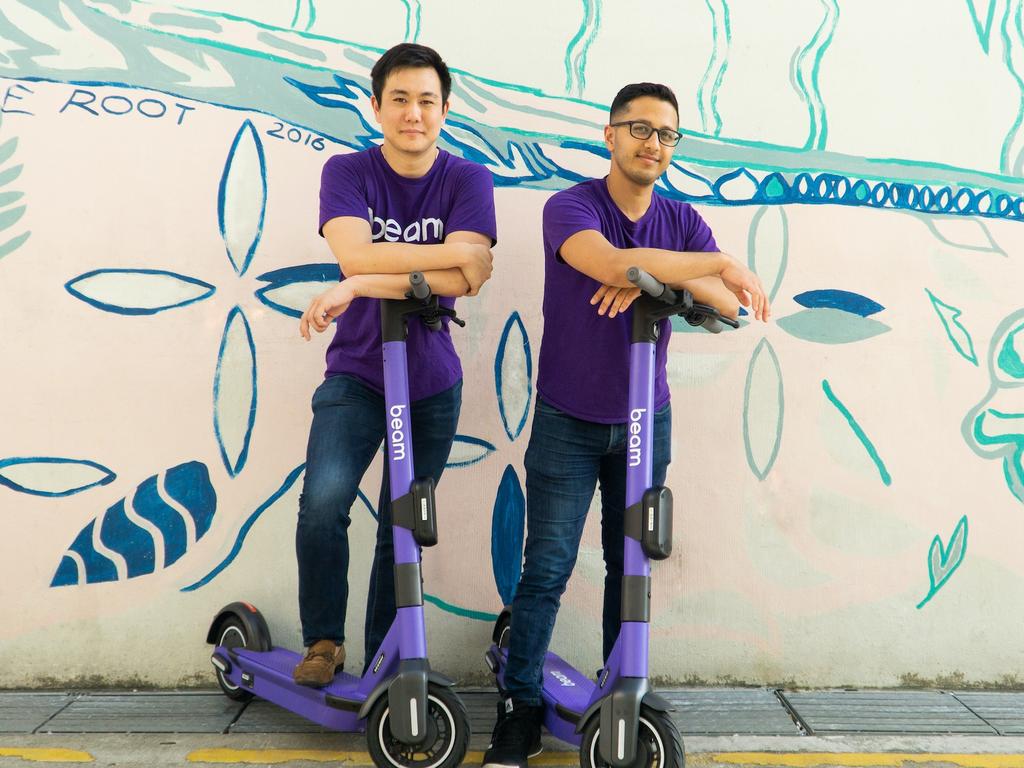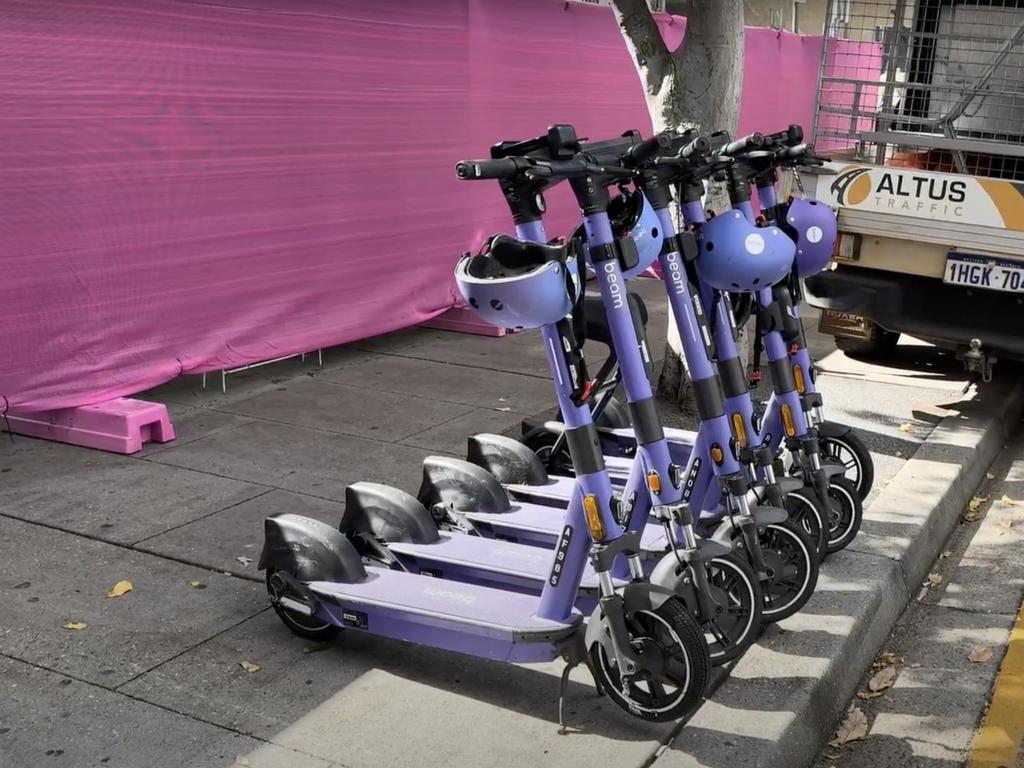Beam’s co-founder exits in scooter firm merger
Beam Mobility ‘more than likely’ intentionally misled authorities over the true number of vehicles on city streets, before five local governments in Australia and New Zealand tore up the operator’s contracts.

Global e-scooter company Beam Mobility “more than likely” intentionally misled authorities in Auckland to sneak hundreds of extra vehicles onto the city streets and make more money, before five Australian and New Zealand local governments tore up the operator’s contracts.
Beam systematically breached its licence conditions in the ACT and Auckland for more than a year, according to previously unreleased investigation findings obtained by The Australian.
An investigation by this masthead last year revealed the Singapore-based firm was allegedly manipulating data to vastly under-record the true number of scooters on the streets of Brisbane, Townsville, Wellington, Auckland and the ACT, in order to subvert safety caps.
The scheme – described in internal leaked Beam documents as the Running Hot Project – allowed the company to generate more ride revenue and avoid paying the correct amount of fees to at least five local governments, which cut ties with the company as a result when it came to light.
When confronted with the leaked documents last year, Beam’s Yale-educated co-founder and CEO Alan Jiang said the company was “deeply apologetic” but did not intend to exceed the vehicle caps.
“We emphatically reject any suggestion this was a ‘scheme’ to deprive councils of revenue,” Mr Jiang said in August.

But in a written decision by Auckland Council’s Mervyn Chetty on August 27 last year, Mr Chetty said Beam’s explanation for the vehicle cap breaches – by an estimated 530 extra vehicles per day – was unsatisfactory.
“I do not accept that Beam’s actions were unintentional or based on a misunderstanding,” Mr Chetty wrote in the document, released this week.
“Based on the internal Beam chats/emails, I consider that it is more than likely that Beam intentionally misled Ride Report and council about the numbers of e-scooters Beam deployed to Auckland streets for the period 26 July 2023 and 15 August 2024.”
The ACT’s investigation found that for a similar period, 31,200 vehicles were recorded as being in an “unknown” state – ie, undetectable to ride-monitoring watchdog Ride Report – but were then being hired by a customer.
“As these unknown devices did not appear on the Ride Report system, they were not captured nor counted in Beam’s overall deployed devices in the Territory,” the investigation found.
The Australian can also reveal that Yale-educated Beam co-founder and president Deb Gangopadhyay has departed the company as a result of its merger with former rival Neuron Mobility, with some internal documents suggesting he would be paid a $US150,000 severance and retain his lucrative shareholding.
It comes as a merger between Beam and its competitor Neuron has resulted in the former’s purple scooters returning to Brisbane, after being banished last year once the contract breach was discovered.
Mr Jiang will remain as the merged entity’s CEO of Asia, while Mr Gangopadhyay will be a “strategic adviser” but not employed by the merged company.
According to ASIC searches conducted on Sunday, both Mr Jiang and Mr Gangopadhyay remain as directors of Beam Mobility Australia Pty Ltd, but it is understood Neuron co-founder and CEO Zachary Wang will replace the pair when the merger is finalised.

Mr Gangopadhyay did not respond to The Australian’s questions before deadline.
Amalgamation documents show all Neuron’s property and privileges will be transferred into Beam, which will remain the “surviving legal entity” and be renamed Neuron Mobility Holdings.
But the documents show the amalgamated company will be led by Mr Wang as chairman and global CEO. He will also sit on its Neuron-dominated board of directors and play a central role in company governance.
Neither Mr Jiang nor Mr Gangopadhyay will be on the board.
The Australian asked Brisbane City Council how it would ensure the merged company did not continue any of Beam’s contract-ending behaviour.
“All e-scooter providers are expected to operate within the requirements of their contracts,” a council spokeswoman said.
In the ACT, the Territory government is inviting companies to apply for an e-scooter permit by August 1 and a spokesman said it was working with Neuron Australasia on “risk mitigation and to ensure compliance with the current permit conditions”.
“As part of this, Neuron has informed the ACT the individuals responsible for the breach are no longer associated with the company,” the ACT government spokesman said.
Neuron Mobility general manager of Australia and New Zealand Jayden Bryant said the company remained “deeply committed to operating with integrity, transparency and in strict compliance with the requirements of our city partners”.
“After years of competing head to head, we’re delighted to bring together the strengths of both companies under Neuron’s leadership,” Mr Bryant said.
A spokeswoman for Beam said the combined company would leverage Beam’s large vehicle fleet and Neuron’s “strong track record of partnering with cities” in Australia.






To join the conversation, please log in. Don't have an account? Register
Join the conversation, you are commenting as Logout